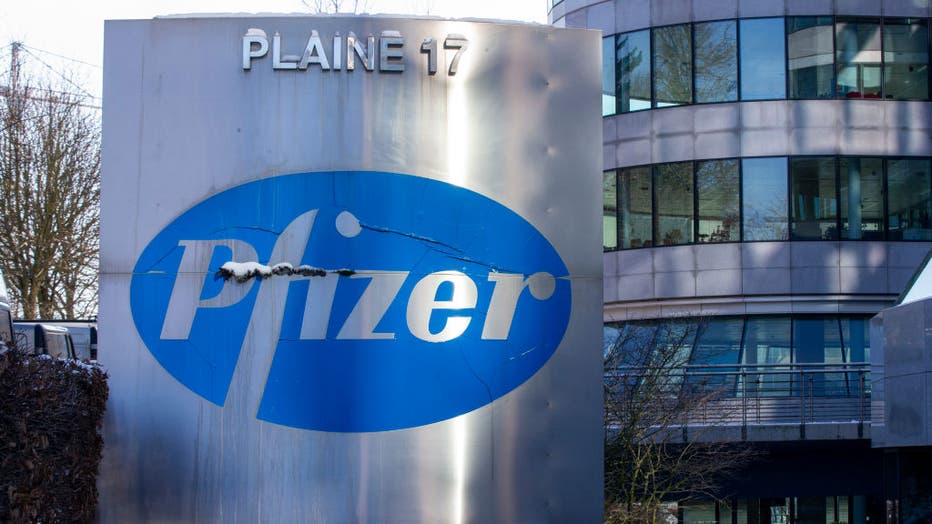Oh my God...Harry you need to stop TRYING to make an ass out of the Royals ..
YOU ARE THE ASS!
BEWARE...SOME DAYS ARE NOT VERY PRETTY. I GET CRABBY LIKE NORMAL PEOPLE DO. AND I DO SPEAK MY MIND. DO NOT READ IF YOU ARE SENSITIVE TO TRUE, REAL, EVERYDAY FEELINGS LIKE MINE.(But I think you would enjoy it) DON'T FORGET...FREEDOM OF SPEECH !
Oh my God...Harry you need to stop TRYING to make an ass out of the Royals ..
YOU ARE THE ASS!
Here we go ...
Dr. Williams Moss, an epidemiologist and executive director of the International Vaccine Access Center at Johns Hopkins, explains how mRNA vaccines by Pfizer and Moderna work and why side effects are more likely after the 2nd dose.
NEW YORK (AP) - Pfizer announced Thursday that it has begun studying a third dose of its COVID-19 vaccine, part of a strategy to guard against mutated versions of the coronavirus.
Health authorities say first-generation COVID-19 vaccines still protect against variants that are emerging in different parts of the world. But manufacturers are starting to prepare now in case a more vaccine-resistant mutation comes along.
Pfizer said it will offer a third dose to 144 volunteers, drawing from people who participated in the vaccine’s early-stage U.S. testing last year. It wants to determine if an additional booster shot given six to 12 months after the first two doses would rev up the immune system enough to ward off a mutated virus.

Illustration picture shows the headquarters of pharmaceutical company Pfizer in Elsene - Ixelles, Brussels, Thursday 11 Feb. 2021. (Photo by NICOLAS MAETERLINCK/BELGA MAG/AFP via Getty Images)
Pfizer and its German partner, BioNTech, also are tweaking their vaccine recipe. The companies are in discussions with U.S. and European regulators about a study to evaluate doses updated to better match variants such as the one first discovered in South Africa.
https://www.yahoo.com/news/covid-19-vaccines-pfizer-moderna-side-effects-astrazeneca-204923661.html

The recent decision by five Canadian provinces to change the way they administer the AstraZeneca vaccine should not deter anyone from getting vaccinated, or to regret getting AstraZeneca if they already did, one expert says.
Samantha Yammine, a neuroscientist and science communicator, says that with more than a billion vaccines already given out worldwide, it’s highly unlikely that we’ll see any major, common issues develop with other vaccines now.
“The comforting thing is that there have been millions of doses of the mRNA vaccines given out, so at this point it’s unlikely anything new would come up that would affect a lot of people,” she said. “If anything new comes up at this point, it would be astronomically rare.”
While the blood-clotting condition caused by AstraZeneca is concerning, Yammine says there isn’t a lot of unpredictability surrounding vaccines, and the benefits of receiving them far outweighs any potential risks.
“Vaccines are among the most well-studied medicines. We have got to keep all of that in mind, and remember how many people have died of COVID-19. We’re going to see that any place that has had a lot of vaccinations given out has also seen a significant decrease in their COVID cases. All of that has to be kept in perspective.”
A lot of the hesitancy encompassing vaccines comes from a poor understanding of how the medicines actually work, Yammine says. And with over a billion doses administered worldwide, and more than a year’s time, most of the impacts of the vaccine have already been identified.
“The vaccines themselves, the product in the vaccines, only stays in your body for a very short amount of time. So any issue that the vaccine products themselves could have show up rather quickly. Even in the case of VITT (vaccine-induced thrombotic thrombocytopenia), you’re seeing the effects happen within a month window. So we’ve observed all of the vaccine related issues that we could because now the vaccines have been given out for over a year,” she said.
“The immune protection from the vaccines, that’s what’s long-lasting.”
Yammine also attributes some of the hesitation around vaccines to the way our brains are wired when it comes to thinking about risks vs. rewards. Most medicines we take cure us of whatever’s making us sick, or offer some form of instant pain relief. Vaccines, however, are preventative medicines, so if they’re working correctly, which they predominantly are, the reward is that you don’t get sick.
“Vaccines are a victim of their own success because when they work, nothing happens. And that’s not that interesting of a news story, and it’s not something we’ll notice in our day to day. So that’s why people feel weird about vaccines.”
B.C. and New Brunswick are the latest provinces to announce they would stop offering first doses of the AstraZeneca vaccine, following closely on the heels of Alberta, Ontario and Quebec.
The vaccine has been linked to a blood clot disorder, and though it is rare, researchers found it affects roughly one in every 26,000 cases to one in every 127,000.
WEST PALM BEACH, Fla. (AP) — The student reporter who gained national acclaim when he interviewed President Barack Obama at the White House in 2009 has died of natural causes, his family says.
23 natural causes??????